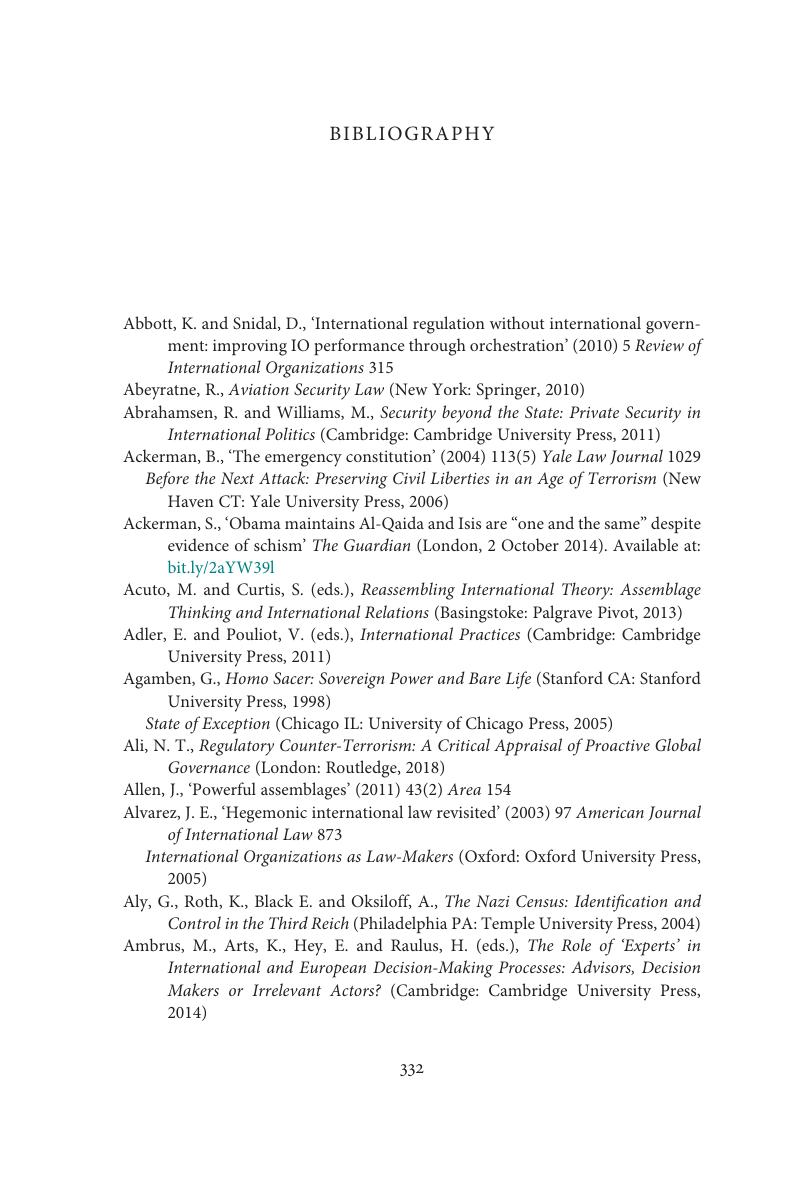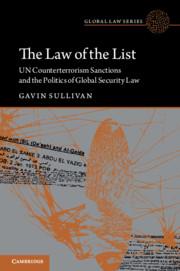Book contents
- The Law of the List
- GLOBAL LAW SERIES
- The Law of the List
- Copyright page
- Dedication
- Contents
- Figures
- Foreword
- Acknowledgements
- Table of Cases
- Abbreviations
- Interviews
- 1 The Law of the List
- 2 Global Listing Technologies and the Politics of Expertise
- 3 The List As Multiple Object: the UN Office of the Ombudsperson
- 4 Complexity in the Courts: the Spatiotemporal Dynamics of the List
- 5 Conclusions
- Bibliography
- Index
- References
Bibliography
Published online by Cambridge University Press: 24 April 2020
- The Law of the List
- GLOBAL LAW SERIES
- The Law of the List
- Copyright page
- Dedication
- Contents
- Figures
- Foreword
- Acknowledgements
- Table of Cases
- Abbreviations
- Interviews
- 1 The Law of the List
- 2 Global Listing Technologies and the Politics of Expertise
- 3 The List As Multiple Object: the UN Office of the Ombudsperson
- 4 Complexity in the Courts: the Spatiotemporal Dynamics of the List
- 5 Conclusions
- Bibliography
- Index
- References
Summary

- Type
- Chapter
- Information
- The Law of the ListUN Counterterrorism Sanctions and the Politics of Global Security Law, pp. 332 - 366Publisher: Cambridge University PressPrint publication year: 2020



